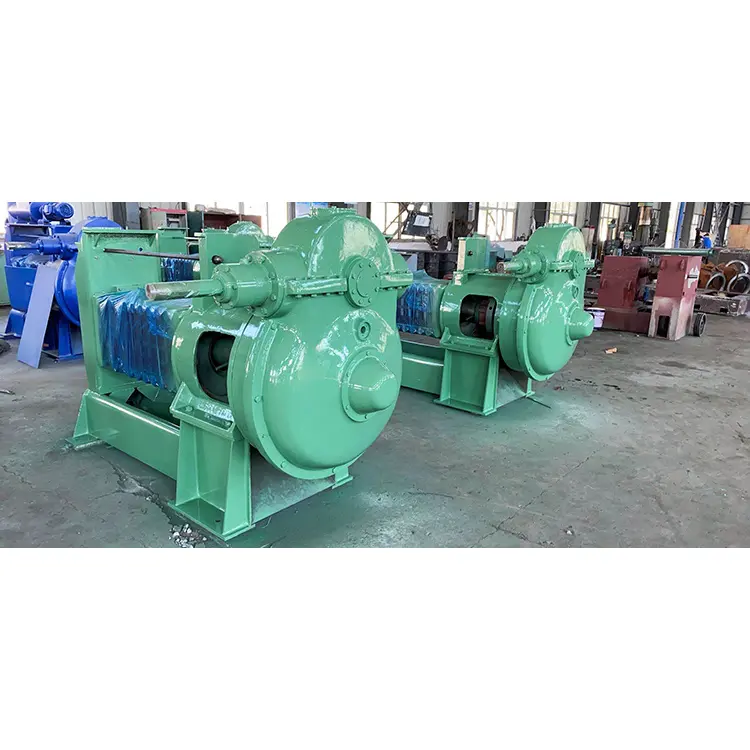Dic . 06, 2024 08:50 Back to list
Animal Oil Refining Equipment Manufacturing Facilities and Technologies
Exploring the World of Animal Oil Refining Machine Factories
In today's rapidly evolving food and manufacturing industries, the importance of refining oils derived from animal sources cannot be overstated. Animal oils, which are typically extracted from fats of various animals like cows, pigs, and poultry, have been used for centuries not only in culinary applications but also in cosmetics, pharmaceuticals, and biodiesel production. At the heart of this process lies the technology and machinery designed for refining animal oils. This article delves into the world of animal oil refining machine factories, detailing their significance, processes, and innovations.
The Significance of Animal Oil Refining
Animal oils serve a myriad of purposes, from being a key ingredient in traditional cooking to functioning as a vital component in industrial applications. These oils must undergo refining to remove impurities, improve flavor profiles, and enhance shelf life. The refining process also helps in transforming raw animal fats into more stable and reusable oils. Given the diverse uses of animal oils, the demand for efficient refining techniques has soared, prompting the establishment of specialized factories around the globe.
The Refining Process
The refining of animal oils typically involves several stages, including degumming, neutralization, bleaching, and deodorization. These processes aim to remove free fatty acids, phospholipids, pigments, and odors that are present in crude animal oils.
1. Degumming The first step involves the removal of phospholipids and other impurities through hydration and centrifugation. This step is crucial, as it enhances the quality of the oil and prepares it for further refinement.
2. Neutralization This step involves treating the oil with an alkali solution to neutralize free fatty acids, which can contribute to off-flavors and spoilage. The neutralization process is vital in ensuring the oil's stability and quality.
animal oil refining machine factories

3. Bleaching During bleaching, the oil is treated with absorbent materials that remove color pigments and remaining impurities. This step is essential not only for improving the visual appeal of the oil but also for eliminating potential oxidative components that can reduce shelf life.
4. Deodorization The final step employs steam distillation to remove volatile compounds that can impart undesirable odors and tastes to the oil. This process is critical in ensuring that the refined oil meets consumer expectations for flavor and aroma.
Innovations in Machinery
The demand for high-quality animal oil has driven technological advancements in refining machinery. Modern animal oil refining machines are equipped with automation and intelligent control systems that enhance efficiency and reduce human error. Mills and factories now utilize continuous refining processes that allow for higher throughput, thus meeting the increasing market demands.
Moreover, eco-friendly innovations are gaining traction within the industry. Factories are increasingly adopting methods that minimize waste and lower energy consumption. Advances in technology have enabled the development of machines that maximize extraction rates while adhering to sustainability practices, thus addressing growing environmental concerns.
The Future of Animal Oil Refining
As the global market for animal oils continues to grow, so too does the potential for innovation in refining technology. The evolving preferences of consumers for healthier and more sustainable products will likely drive further research and development in this field. Factories that invest in cutting-edge machinery and sustainable practices will undoubtedly benefit from increased competitiveness in an ever-changing market.
In conclusion, animal oil refining machine factories play a crucial role in the food and manufacturing sectors. The processes involved in refining these oils ensure that they meet quality standards and consumer expectations. With ongoing advancements in technology, the future of animal oil refining looks promising, poised to meet the challenges of sustainability and efficiency in an increasingly aware world.
-
Food Oil Refined Unit Companies: Leading Manufacturers & Exporters
NewsAug.23,2025
-
Expert Oil Filter Machine Service & Solutions | Quality & Reliability
NewsAug.22,2025
-
LZY-206 Double Screw Cold Oil Press – Maximize Yield, Preserve Nutrients
NewsAug.21,2025
-
Efficient Black Seed Oil Expeller & Multi-Seed Oil Press
NewsAug.19,2025
-
HP 120 Model Cold Oil Press-Hebei Huipin Machinery|Energy Efficiency, Multi-Functionality
NewsAug.18,2025
-
HP 120 Model Cold Oil Press-Hebei Huipin Machinery|Oil Extraction, Multi-Functional
NewsAug.18,2025
